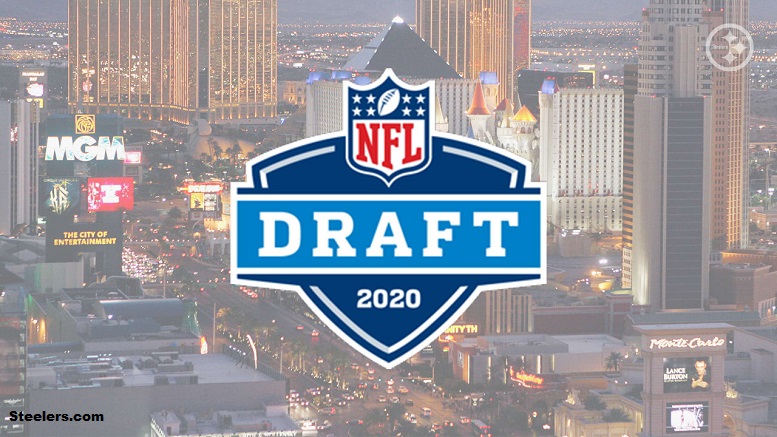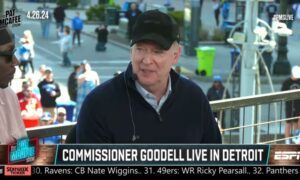If there’s one thing that a highly contagious viral pandemic is good for, it’s ratings. Amid a several-year declining trend in ratings as both networks and cable programs alike face an increasing and accelerating shift toward digital and streaming platforms, unique programming has seen a boost over the past month thanks to the fact that so many people are—well, near-constantly home.
Perhaps the greatest beneficiary of this somewhat literally captive audience to date has been the NFL, which outside of the WNBA is the only major sports platform to have held a live event in over a month, conducting the 2020 NFL Draft over the weekend and drawing a rating spike that will likely never be duplicated.
The league reportedly saw a weekend-wide 37-percent increase in viewership for the three-day event, which ran from Thursday through Saturday across seven rounds of selections and some 255 players. Even the third day of the draft, consisting of the final four rounds and thus the majority of the selections, saw a significant viewership boost of 32 percent.
An average of 8.4 million people tuned in over the course of the weekend, though one does have to consider how much this reflects the necessarily more individual viewing trends dictated by a pandemic. Under normal circumstances, many will be watching the draft from bars or other mutual gatherings, which are currently impossible, so those viewers must tune in individually.
The NFL received pushback early on, including, reportedly, from some general managers and other executives, for their immediate decision to forge ahead with the draft on its originally-scheduled dates, with many believing that it should have been delayed.
Given how everything worked out, however, it’s hard to argue against the decision in hindsight. They were able to conduct the draft with everybody in relative isolation, and put together a mostly-coherent broadcast, short of an increasingly tipsy commissioner whose increased workload clearly got the better of him.
In fact, many within the league are saying, or at least telling reporters, that they feel they have learned a lot through this draft experience, not just about conducting the pre-draft process and of what they might be able to adapt as a regular feature of their process, but about what it means to have a healthier work-life balance.
Pardon the mini-rant here for a minute, but I do think that we as a society, particularly in this country, have allowed ‘hard work’ as a virtue to overshadow basic quality of life, to the point where we view ‘down time’ as being unproductive, and thus somehow not valuable. If we could learn through this the importance of not working ourselves to death—and in building a society that allows people to survive without working themselves to death—then that would be a definite silver lining amid the tragedy.








